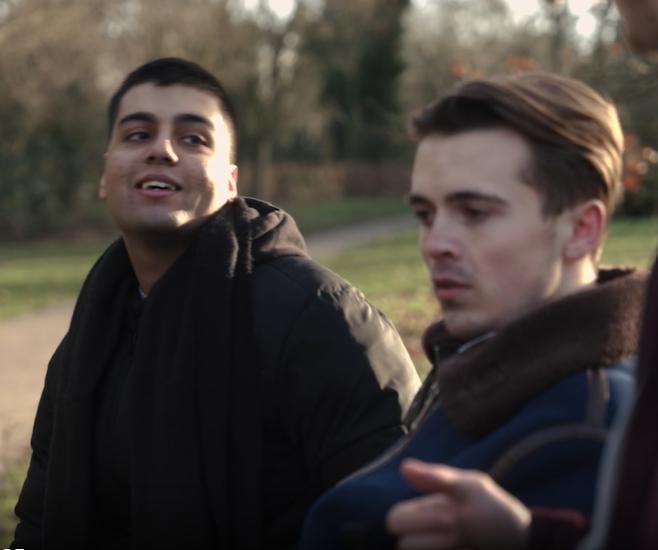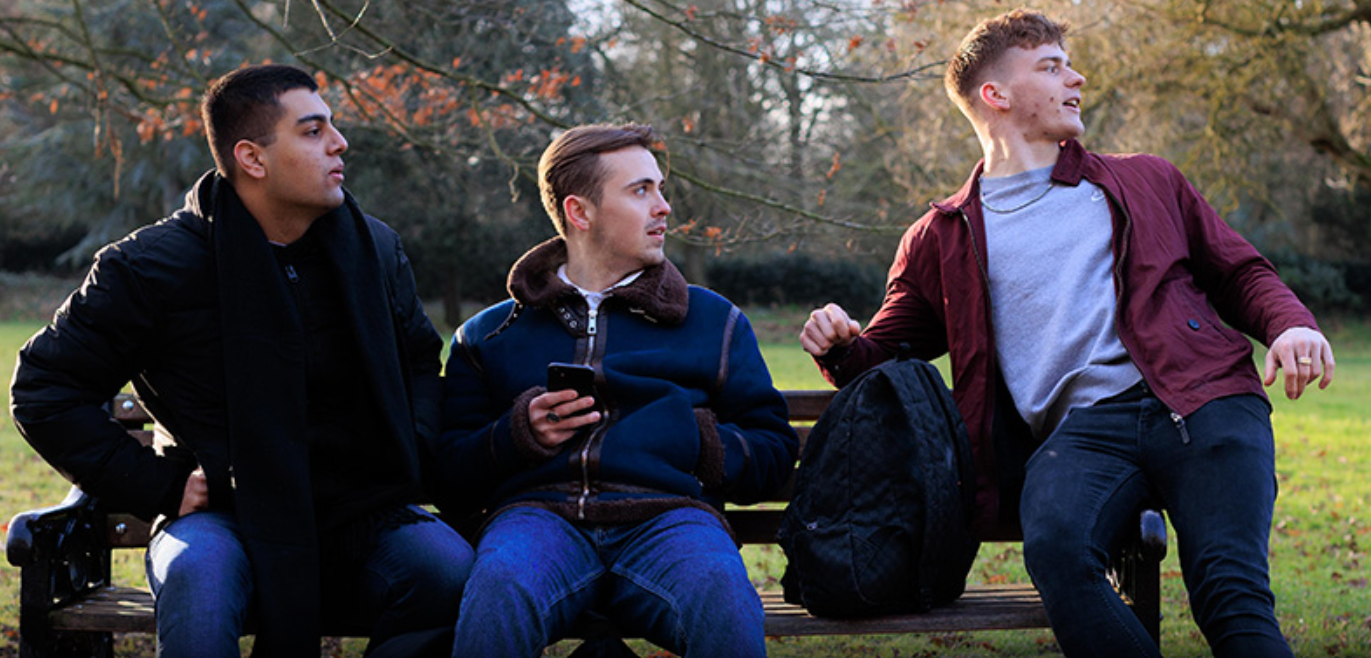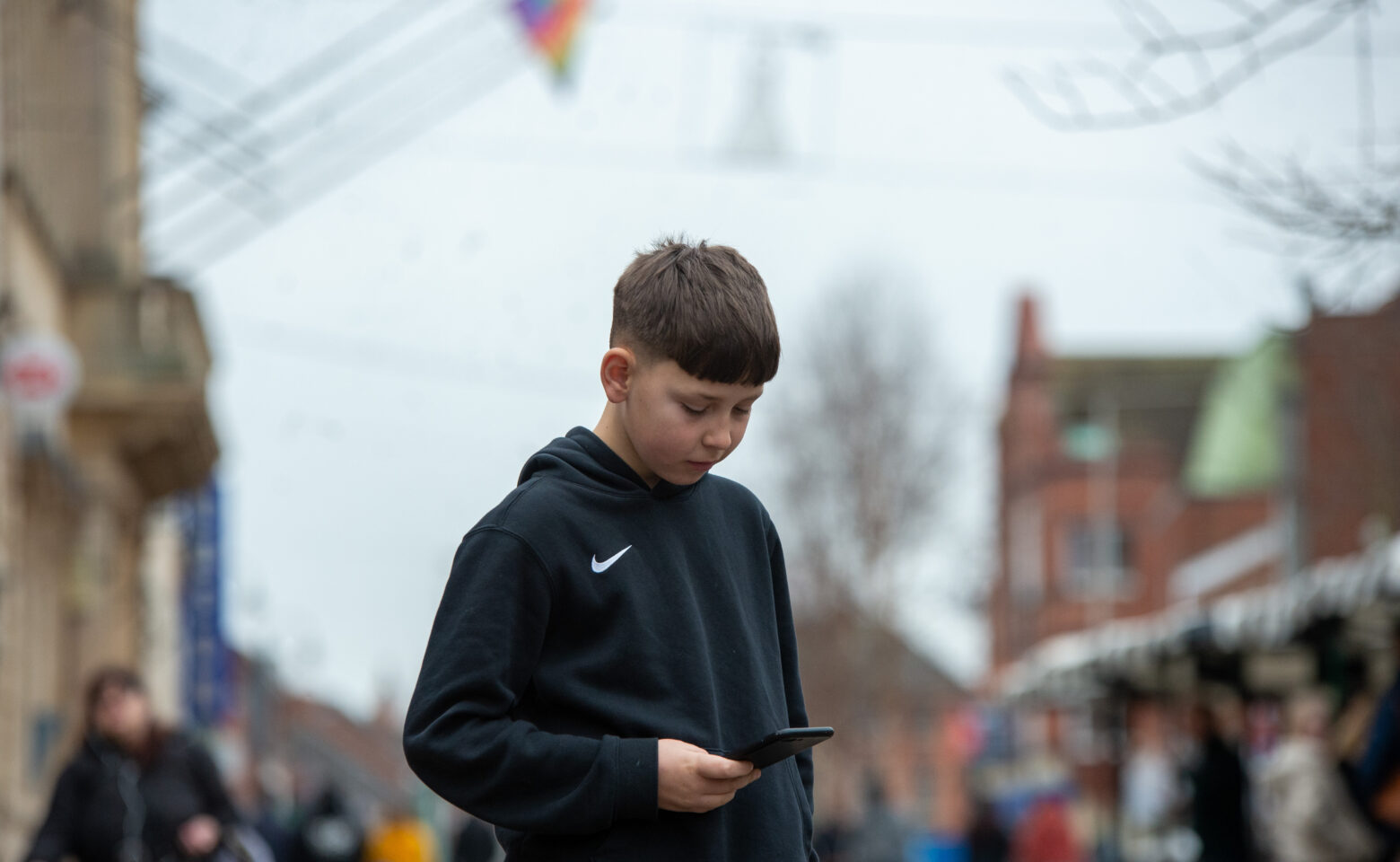SEXUALITY
CLICK HERE TO READ MORE!

A healthy relationship involves respect, trust, good communication & space and boundaries.
From family, friends, to boyfriends, girlfriends and all the rest!
CLICK HERE TO READ MORE!

CLICK HERE TO READ MORE!

CLICK HERE TO READ MORE!

Good communication in a healthy relationship means being able to:
All relationships have disagreements and arguments at times, often referred to as ‘conflict.’
The conflict itself doesn’t mean your relationship is unhealthy – but in a healthy relationship you and your partner will be able to deal with the disagreement in a healthy way.
For e.g., in a healthy relationship, you’ll be able to talk and listen to each other and come to agreements or compromises that are suitable for you both.
If this is not happening in your relationship and the arguments are getting worse, try talking to someone you trust such as a friend or an adult.
For more advice, see HELP AND SUPPORT.
There are some important things to remember about families:
It can be normal to not get on, but it’s not normal for abuse to take place. Sometimes it can be hard to know when something is just an argument, or whether it is a form of abuse. If you are unsure, check out Childline for more information.
If you’re ever worried it’s important to seek HELP AND SUPPORT. Being abused or hurt is never okay, and there are always people who can help.
In society – often through social media, we often see and hear gender stereotypes.
Men grow up with the belief that crying is a sign of weakness; boys are often told not to cry and to ‘suck it up’ instead. This can lead boys to bottle up their emotions, which keeps them from overcoming them effectively.
Many young men associate crying with femininity and weakness, but the bottom line is that crying is a normal human emotion that doesn’t need to be associated with a weakness for any gender or gender non-confirming person.
Science shows that crying is actually a healthy outlet – it helps us regulate emotional stress.
Try talking to someone you trust about this. See HELP AND SUPPORT.
In all friendships, friends can occasionally fall out. But it doesn’t mean it’s the end of the friendship.
If you value your friendship with this person:
But remember – friendships should make us feel good about ourselves and support our emotional wellbeing. If you are unsure whether you want to make up with your friend because you’re worried the friendship is unhealthy – see HELP AND SUPPORT.
For more info about friendships – check out the facts on HealthForTeens.
Trust in a healthy relationship means being able to:
A lack of trust can cause anxiety and a feeling of being on edge so it’s really important that trust is built in any relationship. Trust is something that two people build together and becomes stronger over time.
It is not healthy to go through somebody else’s phone.
Healthy relationships are based on trust, and if you are looking through your partner’s phone without permission, then this could be a sign that you are struggling to trust that person.
Try to identify the reasons why you are going through their phone. If you feel your trust may have been tested or broken, it’s important to talk through your feelings with your partner and decide whether you can move forward or if you need to go your separate ways. You shouldn’t avoid talking through your feelings because you’re scared of the potential outcome.
If you think that your lack of trust may be due to your own insecurities, there are things you can do to help. Some tips:
You don’t have to prove your trust in your friendship by sharing your passwords.
Trust and respecting boundaries is very important. Your friend should not try to invade your space or boundaries. If you feel that you have to give them your password, this is a SIGN OF AN UNHEALTHY RELATIONSHIP.
Be honest with your friend – healthy relationships are built on trust and respect. For example, “I feel uncomfortable when you ask for my passwords.”
A good friend and partner will respect your right to privacy and will not expect you, or pressure you to share your password.
For more help, see HELP AND SUPPORT.
Most people who are in porn are paid actors and they’re doing things to entertain the people watching it.
The actors will behave in a certain way for the film and will have often had surgery to portray a particular type of body.
Typically, a porn actor will be seen to portray the ‘ideal’ sexual body, e.g. no body hair, large and symmetrical genitalia.
Body image can be affected by porn and this can impact trust in a relationship due to unrealistic expectations. It’s important to remember that porn is based on gender stereotypes and not a reflection of real life.
Try talking to your partner about how you are feeling. For more support around body image, see Mind.
Sending sexual messages, images or videos to another person is called ‘sexting.’
KNOW THE LAW: The law is clear – taking or sharing photos of videos of under 18s (this includes yourself) is illegal.
If you are considering sending a nude image to someone make sure you trust them and are aware of the risks below:
Before making a decision, try talking to someone you trust.
In a healthy relationship you should not feel pressured to send a nude, but Childline have some tips on how you can deal with it.
If you have already shared a nude and you’re worried about it…
TAKE ACTION
Try talking to the person you’ve sent it to, and ask them to delete it. Explain why you’re worried.
If someone has done something online to make you feel worried or unsafe, you can report it to CEOP – The National Child Exploitation and Online Protection Centre. CEOP works across country to keep children and young people safe. They can provide you with advice and support.
Mutual respect in a healthy relationship means being able to:
Spending every waking minute with each other isn’t necessarily a sign of a healthy relationship. Having your own interests, hobbies, friends, and periods of time just for you is actually healthy in a relationship.
You should make sure you take time to focus on your own friends, hobbies or space for yourself without being made to feel guilty about it.
You should also encourage your partner to do the same with their own friends. It is important to respect each other and respect each other’s boundaries – it is likely to strengthen your own personal relationship.
If you or your partner are struggling, try talking to them and being honest about how you are feeling.
For more advice, see HELP AND SUPPORT.
It is not okay for your partner to criticise your body or the way you look. No one has the right to do that.
If your partner is criticising the way you look, it’s a sign that things are not right within your relationship. Their behaviour is not acceptable, and you might want to get help. Remember, it is not your fault and you don’t deserve to be treated like this. See HELP AND SUPPORT.
We all have our own identity and clothing is one way in which we can express ourselves and our identity.
Your partner has their own identity, and it is important that they choose what clothes they wear.
If your partner asks for your opinion, then share freely. But ensure your partner keeps their own identity, just like you have yours.
This is a sign of controlling behaviour. If you need more advice or support, see HELP AND SUPPORT.
In a friendship, you both need space by yourself and the time and freedom to hang out with different friends.
It is not healthy that your friend is telling you who you can spend time with.
Try telling your friend that you value your friendship but that you are going to spend time with other people too, but this does not mean that you value them and your friendship any less.
For more advice, see HELP AND SUPPORT.
Setting boundaries in a healthy relationship means being able to:
Deciding whether to have sex is your decision. But if you are considering it, make sure you are aware of the information below and try talking to someone you trust first.
KNOW THE LAW: The law is clear – The age of consent to engage in sexual activity is 16, no matter what your sexuality or gender is. Remember the age exists to protect you.
• Remember: Deciding whether to have sex is your decision. If you’re not feeling comfortable or ready, then nobody has the right to pressure or force you. Remember, respecting each other’s boundaries is part of a healthy relationship.
• Having sex can lead to pregnancy or a Sexually Transmitted Infection (STI). Think about using contraception to protect you and your partner. Click here for more advice on the different types of contraception and where you can access it.
• All persons involved must consent to the sexual activity and be comfortable with it. Consent is vital, and it’s your responsibility to know whether your partner is consenting.
See the next question for more advice around understanding consent.
They will consent before engaging in any kind of sexual activity.
Consent means they agree to take part by choice, and have the freedom and capacity to make that choice.
Consent is:
KNOW THE LAW: According to the law, only a man can commit rape (as the penetration has to be with a penis). However, both women and men can be raped.
A woman can commit sexual assault, and this carries the same maximum sentence as rape and also murder.
Many of the myths surrounding rape can make victims and survivors feel as though they are somehow to blame. Read some common myths below.
Every person has the right to wear whatever clothes they want without being raped or sexually assaulted. The assumption that certain clothing makes someone more likely to be a victim is an example of ‘victim blaming’. There is never any excuse for rape or sexual assault.
If you are worried about yourself or a friend see HELP AND SUPPORT.
False allegations of rape are extremely rare. Most people who are raped or experience another form of sexual violence never tell the police.
If you are worried about yourself or a friend see HELP AND SUPPORT.
Remember that relationships take many forms, and that every relationship is different.
Relationships can be confusing and it can be difficult to understand what is and isn’t normal behaviour.
Use the advice here and try to understand and reflect on your own behaviours in relationships and others to identify where your relationship sits.
If you are worried about your own behaviour, talk to an adult that you trust so that you can take action to stop the behaviour escalating into something more harmful. Harmful behaviour is often illegal and can result in many negative consequences.
If you are the victim of harmful behaviour, it is important to remember that it is never your fault. See HELP AND SUPPORT.

It can be helpful to think of relationships within a spectrum. Imagine ‘healthy’ one end and ‘abusive’ the other end. ‘Unhealthy relationships’ often sit within that spectrum.
Every relationship is different and as such, the signs of unacceptable and unhealthy behaviour might look different in every relationship.
It is not always easy to identify and accept when our own relationship is becoming unhealthy or abusive. But if something is making you feel uncomfortable or unsafe, then it’s important to talk about it.
Worried that your mate is in an unhealthy or abusive relationship? Here are some signs to look out for:


National Helplines:
Rape Crisis: 24/7 helpline for victims of rape and sexual abuse 0808 500 2222
Mankind Initiative: For male victims of Domestic abuse: 0182 333 4244
Galop: For LGTBT+ communities for support for Domestic violence and hate crime: 0800 999 5428
If you are worried that you are a victim within an abusive relationship, you can find sources of local support below:
National Helplines:
Respect: For young people aged 18+ who are perpetrators of domestic abuse 0808 802 4040 (M-F 10am-5pm).
If you are worried that you are displaying abusive behaviour within your relationship, you can find sources of local support below:
LGBTQIA+ is an abbreviation for lesbian, gay, bisexual, transgender, queer or questioning, intersex, asexual, and more. These terms are used to describe a person’s sexual orientation or gender identity. It’s important for us to have awareness of each other. For more information, check out the A to Z of terminology here – A to Z of LGBTQ Terminology (A-H) | Health For Teens
You cannot choose how you feel about other people, but you can choose how to label your sexuality, or if you prefer, you don’t need to label it at all.
It’s totally normal for some young people to be confused about their sexual identity. Some people know their sexuality from an early age, whilst others want to experiment while they are exploring it. You might find it helpful to talk to someone about exploring your sexuality. Find out more here – Proud Connections Live Chat – The Proud Trust
We currently live in a heteronormative society and therefore it can be daunting for some people to accept their sexuality.
Remember that nothing has “caused” you to feel this way and there is nothing wrong or weird about the way you are feeling. However you are feeling is completely valid and you shouldn’t put yourself under pressure to figure out your sexuality immediately.
Take the time to explore your feelings and reflect on how you are feeling – it will be difficult to understand them if you ignore them.
You might find it helpful to talk to a friend or a trusted adult.

For some young people, coming to terms with the fact that they might be attracted to someone of the same sex can be difficult.
There are plenty of services and online resources to help young people who are exploring their sexuality.
It can help to talk to other people who are going through the same thing.
For more info on sexual and gender identity
Sexual and gender identity | Childline
For a helpline, email support and further info on the topic
Home – LGBT Foundation
For stories and experiences from other LGBTQIA+ people
People Like Me – The Proud Trust
Negative behaviours and attitudes from boys and men towards women and girls can cause real harm. We need to think about how boys and men are treating women and girls and start having conversations about what we can do to make our communities safer places. Remember – all violence starts somewhere!
Left unchallenged, this behaviour can escalate: the situation itself escalates, or a mate’s behaviour can become worse over time.

One of the most powerful ways to change someone’s behaviour is through their own friendship groups.
By starting a convo with a mate when you see them act out of line, you can make a real difference.
You don’t always have to directly challenge a mate if it’s not the right time, you can also get help from others or distract them to stop the situation before it starts.
‘You’re Right, That’s Wrong’ gives you the tools and confidence to have the conversation with a mate.
For tips on HOW to have the conversation, see here:
Harassment and stalking is when someone repeatedly behaves in a way that makes you feel scared, distressed, or threatened.
Stalkers can be male or female.
It’s harassment if the unwanted behaviour has happened more than once.
Harassment may include:
Sexual harassment is when unwanted behaviour:

If you’ve experienced any of these it’s not your fault and you don’t have to put up with it.
Stalking is like harassment, but it’s more aggressive. The stalker will be obsessed with the person they’re targeting.
Someone you know could be stalking you; an ex-partner or a person you were friends with, or it might be a stranger. If it’s someone you know, or knew, it doesn’t mean that it’s your fault; it’s still stalking and it’s an offence.
Stalking may include:

If the behaviour you’re experiencing is:
Social networking sites, chat rooms, gaming sites and other forums are often used to stalk and harass someone, for example:
• To get personal information.
• To communicate (calls, texts, emails, social media, creating fake accounts)
• Damaging the reputation
• Spamming and sending viruses
• Tricking other internet users into harassing or threatening
• Identity theft
• Threats to share private information, photographs, copies of messages

Worried you’re being stalked or harassed?
You can report the crime to the Leicestershire Police or contact the National Stalking Helpline
You can report it anonymously to Crimestoppers
Visit the Suzy Lamplugh Trust website for more info

If you or someone you know is in immediate danger please dial 999. Choosing to pass on information isn’t an easy decision to make. But it is the right one. However big or small, get it off your shoulders with 100% anonymity.
Let’s make our home a safer place to live and thrive.